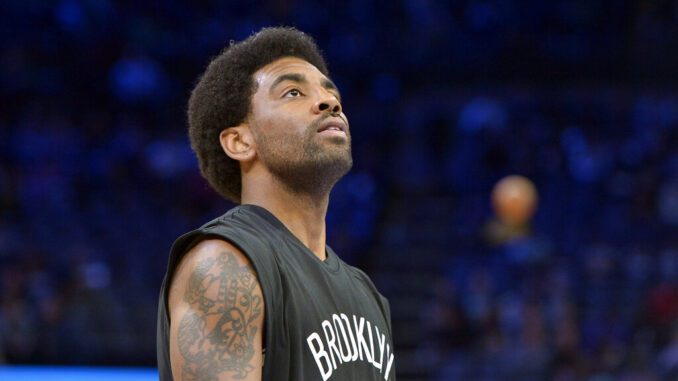
All across the world, countries are lifting mask requirements, vaccination mandates, and capacity limitations, leaving many individuals with the impression that the COVID-19 pandemic has finally come to an end.
Despite this significant thawing in COVID restrictions, one massive international industry is still being forced to navigate the remnants of the lockdowns: sports.
After witnessing sporting events with empty stadiums or, at best, cardboard cutout fans for the better part of two years, many fans are excited to finally get back in the stands. However, due to the persistence of international travel bans for unvaccinated non-citizens (specifically to the United States, Canada, and Australia) and COVID passport requirements in places like New York City, not all the big-name athletes are in attendance.
Kyrie Irving, the point guard for the Brooklyn Nets, was ineligible to play any games in his home stadium during the 2021-22 season due to the city’s vaccine mandate, drastically affecting the team’s playoff run in April.
Serbian tennis player Novak Djokovic had his visa canceled and was deported hours before defending his title at the Australian Open this past January, even though he had initially received a medical exemption from Tennis Australia and the Department of Health in Victoria.
Most recently, player vaccination statuses have started creating problems for Major League Baseball franchises. Because of Canada’s travel restrictions, ten Kansas City Royals players could not travel with the team to play against the Toronto Blue Jays. Also affected were the St. Louis Cardinals, who announced that their All-Star corner infielders, Nolan Arenado and Paul Goldschmidt, would be unable to make a trip with the team to Canada for their recent series.
These COVID-related difficulties have led to a public outcry about vaccines from disappointed fans and especially the media, with most of the heat being directed at the players. Some sports writers have gone as far as to attack the ethical convictions of these unvaccinated players and even question their commitment to their teams, stirring up conflict between fans on social media and in the stands.
Of course, it’s unfortunate that these athletes are being sidelined, but based on evidence regarding the effectiveness of these vaccines and some shocking side effects, are a couple of sporting events really more important than the long-term health of these athletes?
Since the speedy development of the mRNA vaccines and their subsequent release to the public in January 2021, we’ve seen little positive development in their ability to stop the spread of the disease. By September, Pfizer and Moderna offered “boosters” to supplement their initial shots, even requesting recipients return for a second booster four months after the first.
In a CNN Townhall last year, President Joe Biden told listeners, “You’re not going to get COVID if you have the vaccinations.” Two weeks ago, he tested positive for COVID for the second time, despite being up to date with his boosters. And he is just one of many individuals to contract COVID after taking all the recommended precautions.
Just two weeks ago, Dr. Debroah Birx, the White House COVID-19 response coordinator under former President Trump, told Fox News, “I knew these vaccines were not going to protect against infection. And I think we overplayed the vaccines.”
The ineffectiveness of these vaccines aside, lists of athletes who have reportedly suffered cardiac arrest and, in some cases, died during games after receiving a vaccination continue to circulate across the web, leaving many people questioning the safety of these vaccines. If stories of healthy athletes collapsing on the fields aren’t unnerving enough, the FDA requesting 75 years to disclose safety data for the Pfizer vaccine certainly doesn’t instill any additional confidence.
All of this begs the question, how many double-boosted individuals must get COVID, or healthy athletes must die on the field before the media and fans stop vilifying athletes for opting out of taking the vaccine?
Given the uncertain and ever-changing circumstances surrounding these vaccines, it’s not hard to imagine why these professional athletes would be hesitant to get the jab.
Griffin Daughtry is the local news editor of the North State Journal.
